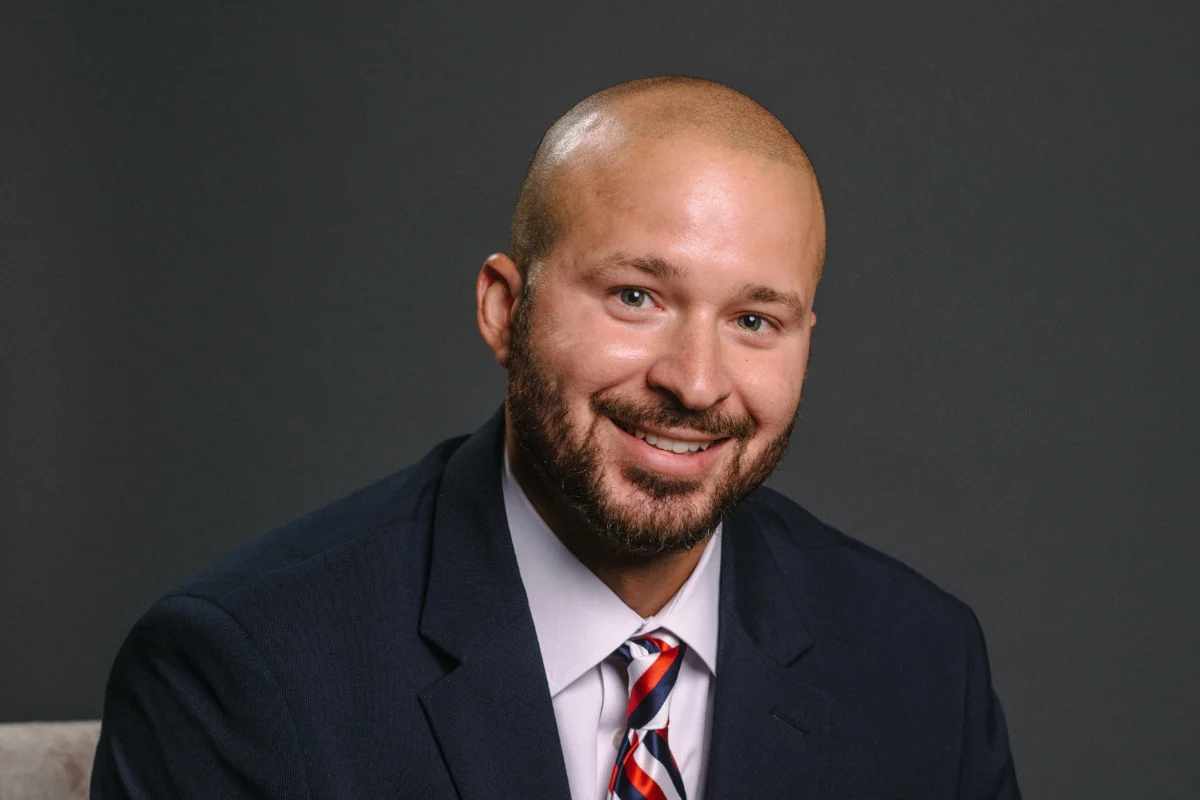A New Era for Tulsa Housing: CEO Aaron Darden’s Commitment to Economic Growth and Inclusivity

This month’s Community Profile Feature explores insights from Aaron Darden, CEO of the Tulsa Housing Authority. Aaron has been instrumental in leading the organization’s transformative efforts to revitalize Tulsa’s housing landscape. Under his leadership, the River West development has become a shining example of mixed-income community building, demonstrating the power of intentional economic development to create impactful change.
Aaron’s approach emphasizes the vital connection between affordable housing and sustainable economic growth, positioning Tulsa for continued success. Drawing from his experience in Nashville, he brings forward-thinking insights to ensure Tulsa remains prepared for future growth, while maintaining its commitment to inclusivity and opportunity for all.
Over the past several years, the Tulsa Housing Authority has undertaken an incredibly ambitious transformation of its housing assets, with River West leading the way. How do you see River West as a model for place-based economic development efforts that are deliberate about building mixed income communities?
River West is the proof of concept for mixed-income communities in Tulsa. Mixed-income for us looks like traditionally subsidized units, affordable workforce units and straight market rate units, all integrated in the development. Every unit has the same amenities; you don’t get less because you pay less.
This model has proven successful not just in terms of occupancy (100% of first year tenants renewed their lease at the one-year mark), but in terms of the power of mixed-income communities to change peoples’ lives. For example, we’ve seen resident outcomes including:
- A 61% annual increase in workforce training participants since 2020
- A 17.5% increase in employed income since 2019
- A 12% decrease in the unemployment rate since 2019
And economic growth and outcomes including:
- Apple Barrell Café opening in the neighborhood (first full-service restaurant)
- Multi-million-dollar façade improvement to the strip mall in the neighborhood
- Home values increased over 35% in the adjacent single-family neighborhoods
This month, Zink Lake opens after years of work to bring the project to fruition. How can Tulsa build upon the Arkansas River as an asset, and how can we ensure we’re deliberate about incorporating housing development as a part of economic development efforts?
We can’t talk about economic development and not also talk about housing. They are inextricably linked. As a community we’re already experiencing a crisis-level deficit of affordable housing, and as Tulsa continues to grow, so will the need for housing of all types.
The problem is big and will require a big, bold response from across all sectors – government, corporate and philanthropic – to adequately address it. River West is a shining example of what can be when public/private partnerships work the way they’re supposed to. We need to continue to push and to scale these kinds of projects to meet today and tomorrow’s demand.
What are your hopes for creating additional connections and opportunities between River West and the Arkansas River corridor?
When we first began the Choice Neighborhoods process at River West, I heard the same refrain many times – “I never come to this area of town!” We’ve seen a meaningful sea change just in the last six years since we launched the project, with development like the first sit-down restaurant in the area, increased home values, the neighborhood elementary school becoming a Montessori school and the upcoming opening of the YMCA next door to River West.
I believe we’ll continue to see growth in this area of our city, a significant portion of which is along Route 66, and will encourage continued economic development to grow what’s already been accomplished.
You spent a number of years in Nashville. What can Tulsa learn from Nashville’s successes and challenges?
Nashville has experienced unprecedented growth over the last 25 years in all major sectors. From tourism, to professional sports teams, and becoming a prime destination for major corporate business headquarters. Given all that growth, there were a few surprising issues that presented themselves.
First, forward thinking around Nashville’s infrastructure, and answering the question of “can the current infrastructure support this growth?”, never really occurred with the appropriate foresight and urgency. That has left Nashville dealing with major challenges around public transportation, traffic, and housing. I would point out that a lack of affordable housing is now presenting significant challenges to Nashville’s continued growth, as most individuals who are from Nashville have been priced out of living there.
Another challenge centered around economic growth stems from the City’s decision to lure corporate headquarters, and professional sports teams, with tax incentives. Due to the deep tax incentives offered, the City itself has never been able to take full advantage financially, of these major corporations and businesses being located in Nashville. This has been debated at the City Council level, all the way to the state senate.
The take away for me when looking at Nashville, compared to Tulsa, is that we have an amazing opportunity here in Tulsa to be that next Nashville or Austin. The momentum that has been created in Tulsa around economic development, tourism, and housing, has Tulsa positioned to become a premier destination for corporate business and families. But, we must stay vigilant, and be forward thinking about the impact growth will have, and start making those preparations now.